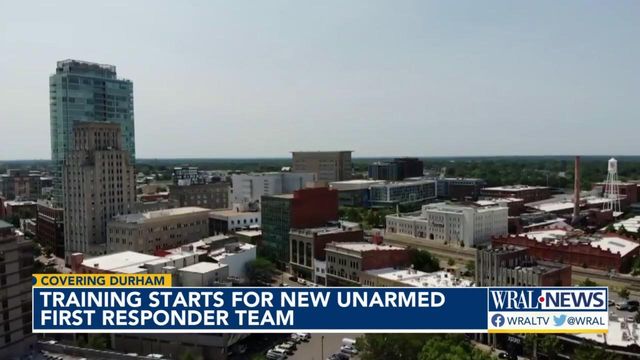Unarmed responder training begins in Durham in effort to ease burden on police
A new branch of safety enforcement in Durham intends to summon unarmed first responders for behavioral health and quality of life calls.
Posted — UpdatedThe Community Safety Department will encompass the unarmed responder program. Training began on Monday.
Ryan Smith, the Director of the department, said three pilot programs will launch on June 27.
- Crisis call diversion that will embed clinicians in the 911 center
- Community response teams, consisting of unarmed three-person teams to respond to non-violent 911 calls
- A care navigators pilot to provide follow-up care after 911 calls
Smith said Durham is the first municipality in the state to implement the crisis calls and community response teams.
Monica Martinez is the mother of a 15-year-old girl who suffers from depression, anxiety and ADHD.
She called 911 when her daughter was in the midst of a mental health crisis. Although she said her sister is an officer and she generally has respect for police, Martinez remembered her daughter as being "terrified" by the experience.
"I think that it’s really important that we treat mental health crises as a mental health crisis, and not as a crime," said Martinez, who lives in Cary and would support the program coming to her city. "Because it’s not going to help someone’s mental situation to be treated like a criminal when they’re already in crisis."
Smith said 11 of 13 positions are filled, other two should be filled by mid-June.
Dr. Monique Holsey-Hyman is a professor of social work at North Carolina Central University. She's also a proponent of the program and wants to attend some of the training. She said the training prepares them to deal with potentially dangerous situations.
"What I’m really loving about this is they are going to be able to get follow-up within 48 hours," Holsey-Hyman said. "Because in my experience the best way to continue to stop a different crisis or more trauma is link people to services."
Related Topics
• Credits
Copyright 2024 by Capitol Broadcasting Company. All rights reserved. This material may not be published, broadcast, rewritten or redistributed.





